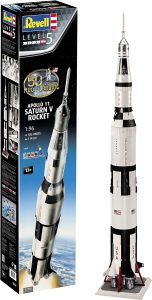Imagine the rush of launching your very own model rocket into the sky, watching it soar to incredible heights, and feeling an overwhelming sense of accomplishment. Whether you're a seasoned rocketeer or just starting out, finding the perfect spot to set off your model rocket is crucial for a safe and successful flight. In this ultimate guide, we'll explore the best places to launch your model rocket, essential safety tips, and expert advice to take your hobby to new heights.
Quick Links to Useful Sections
- Understanding Model Rocket Safety
- Best Places to Launch Model Rockets
- 1. Open Fields or Parks
- 2. Designated Model Rocket Launch Sites
- 3. Beaches or Coastal Areas
- 4. Rural or Agricultural Areas
- Expert Tips for a Successful Launch
- 1. Choose the Right Weather Conditions
- 2. Prepare Your Model Rocket
- 3. Use a Launch Pad or System
- 4. Track Your Model Rocket
- Resources and community Support: Your Next Steps
- Frequently Asked Questions: Model Rocket Launching
Understanding Model Rocket Safety
Before we dive into the best places to launch your model rocket, it's essential to understand the importance of safety. Model rockets can reach incredible speeds and altitudes, posing a risk to people, animals, and property if not handled properly. Always follow these safety guidelines:
- Choose a wide, open space with minimal obstacles and no overhead power lines.
- Ensure a safe distance from people, animals, and flammable materials.
- Never launch a model rocket near airports or in restricted airspace.
- Always follow the manufacturer's instructions and guidelines.
- Wear protective gear, such as safety glasses and a hat.
By prioritizing safety, you'll be able to enjoy your model rocket hobby with confidence and peace of mind.
Best Places to Launch Model Rockets
Now that we've covered the importance of safety, let's explore the best places to launch your model rocket:
1. Open Fields or Parks
Wide, open spaces like fields or parks are ideal for launching model rockets. Look for areas with minimal obstacles, such as trees or power lines, and ensure you have permission to launch.
Looking For The Best Model Rocket Kits? You'll Love These:
2. Designated Model Rocket Launch Sites
Many clubs and organizations, like the National Association of Rocketry, offer designated launch sites for model rockets. These sites often have safety features, such as launch pads and recovery systems, to ensure a safe and successful flight.
3. Beaches or Coastal Areas
Beaches or coastal areas can provide a unique and exciting launch experience. Just be sure to check local regulations and ensure you're not disturbing wildlife or other beachgoers.
4. Rural or Agricultural Areas
Rural or agricultural areas can offer a safe and secluded spot to launch your model rocket. Always obtain permission from the landowner and ensure you're not disturbing crops or livestock.
Expert Tips for a Successful Launch
To ensure a successful and enjoyable launch experience, follow these expert tips:
1. Choose the Right Weather Conditions
Avoid launching in strong winds, heavy rain, or extreme temperatures. Ideal weather conditions include light winds and clear skies.
2. Prepare Your Model Rocket
Always follow the manufacturer's instructions and perform a pre-flight check to ensure your model rocket is ready for launch.
3. Use a Launch Pad or System
A launch pad or system can help stabilize your model rocket and ensure a safe and successful launch.
4. Track Your Model Rocket
Use a tracking device or GPS system to monitor your model rocket's flight and ensure a safe recovery.
Resources and community Support: Your Next Steps
Joining a model rocket community or seeking out resources can help you improve your skills, learn new techniques, and connect with like-minded enthusiasts. Here are some resources to get you started:
- National Association of Rocketry (NAR)
- Model Rocketry subreddit
- Local model rocket clubs or meetups
By tapping into these resources and communities, you'll be able to take your model rocket hobby to new heights and connect with others who share your passion.
Frequently Asked Questions: Model Rocket Launching
Here are some frequently asked questions about model rocket launching:
1. What is the safest way to launch a model rocket?
Always follow the manufacturer's instructions and safety guidelines, and ensure you're launching in a safe and open area.
2. How high can model rockets fly?
The altitude of a model rocket depends on the type and design, but some can reach heights of over 1,000 feet.
3. Can I launch a model rocket in my backyard?
It's not recommended to launch a model rocket in your backyard, as it may pose a risk to people, animals, or property. Instead, choose a wide, open space with minimal obstacles.
Looking For The Best Model Rocket Kits? You'll Love These:
Useful Interruption: Dive deeper into the world of Model Rockets with our most popular sections. If there is anything you think is missing or anything you would love for us to write about, just give us a shout.
- Getting Started & Basics With Model Rockets
- Model Rocket Design, Build & Customization
- Model Rocket Propulsion & Engine Technology
- Model Rocket Launch Techniques & Recovery
- Model Rocket Advanced Rocketry & Innovations
- Model Rocket DIY and Customization
- Model Rocket Equipment Reviews & Digital Tools
- Community, Competitions & Education
- Model Rocket Troubleshooting & FAQs
- Model Rocket Bonus/Seasonal & Niche Topics
A group of model rocket enthusiasts gathered at a field for their weekly launch event. Among them was Dave, a seasoned builder known for pushing the limits of hobby rocketry. This time, he had outdone himself.
“Ladies and gentlemen,” Dave announced, dramatically pulling a cloth off his latest creation, “I present to you: The Kraken!”
The crowd gasped. This wasn’t just a model rocket, it was a monster. The thing stood 8 feet tall, had six clustered engines, and was covered in enough duct tape to qualify as a classified aerospace project.
“Dave,” muttered Steve, the cautious safety officer, “Have you, uh… done the math on this?”
“Math?” Dave scoffed. “I built it in my garage at 3 a.m. with parts from eBay. This is an art piece, Steve.”
The countdown began.
5…
4…
3…
2…
1…
The engines ignited with a BOOM, and The Kraken shot up… kind of. It immediately did a violent barrel roll, narrowly missing the spectators before skyrocketing at an angle that could only be described as “legally questionable.”
The crowd collectively ducked as The Kraken flew straight over the adjacent cornfield, where Old Man Jenkins, the grumpiest farmer in town, was minding his business.
KABOOM!
The rocket disappeared behind the barn. A moment later, a flaming piece of Estes igniter wire landed at Steve’s feet. The silence was deafening.
And then, an unmistakable sound echoed across the field.
Jenkins’ shotgun being cocked.
“DAVE!!!” Steve shouted. “RUN.”
And that was the day Dave invented the first-ever biologically powered rocket booster: pure adrenaline.
To this day, nobody knows where The Kraken landed, but legend has it, it still haunts the skies, terrifying unsuspecting drones and low-flying birds.















